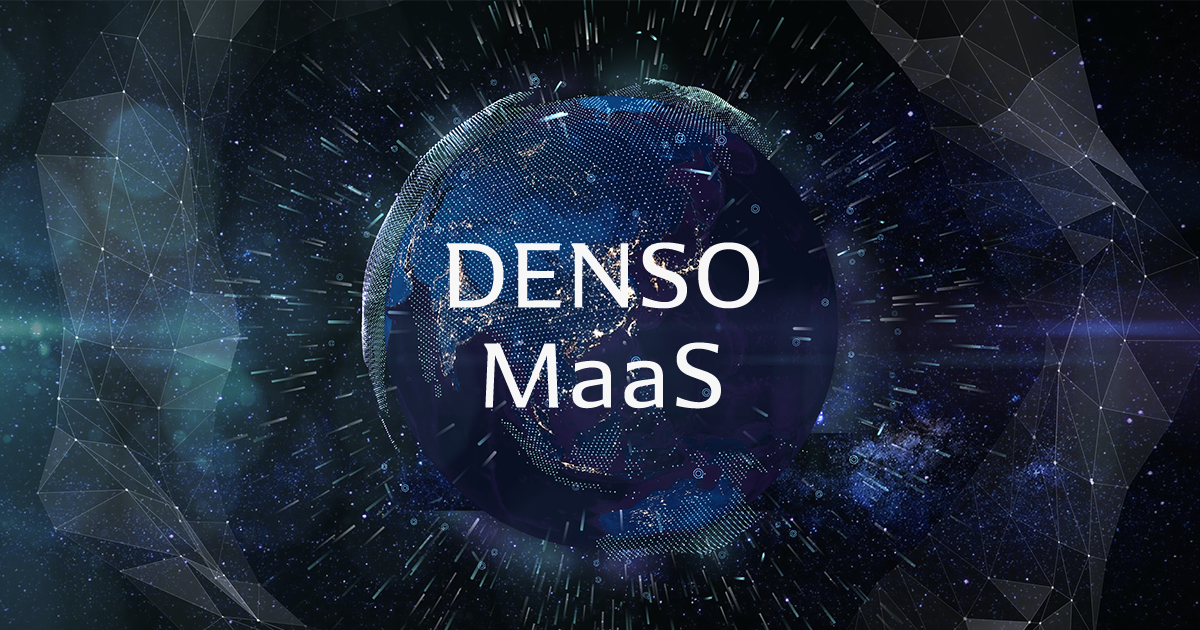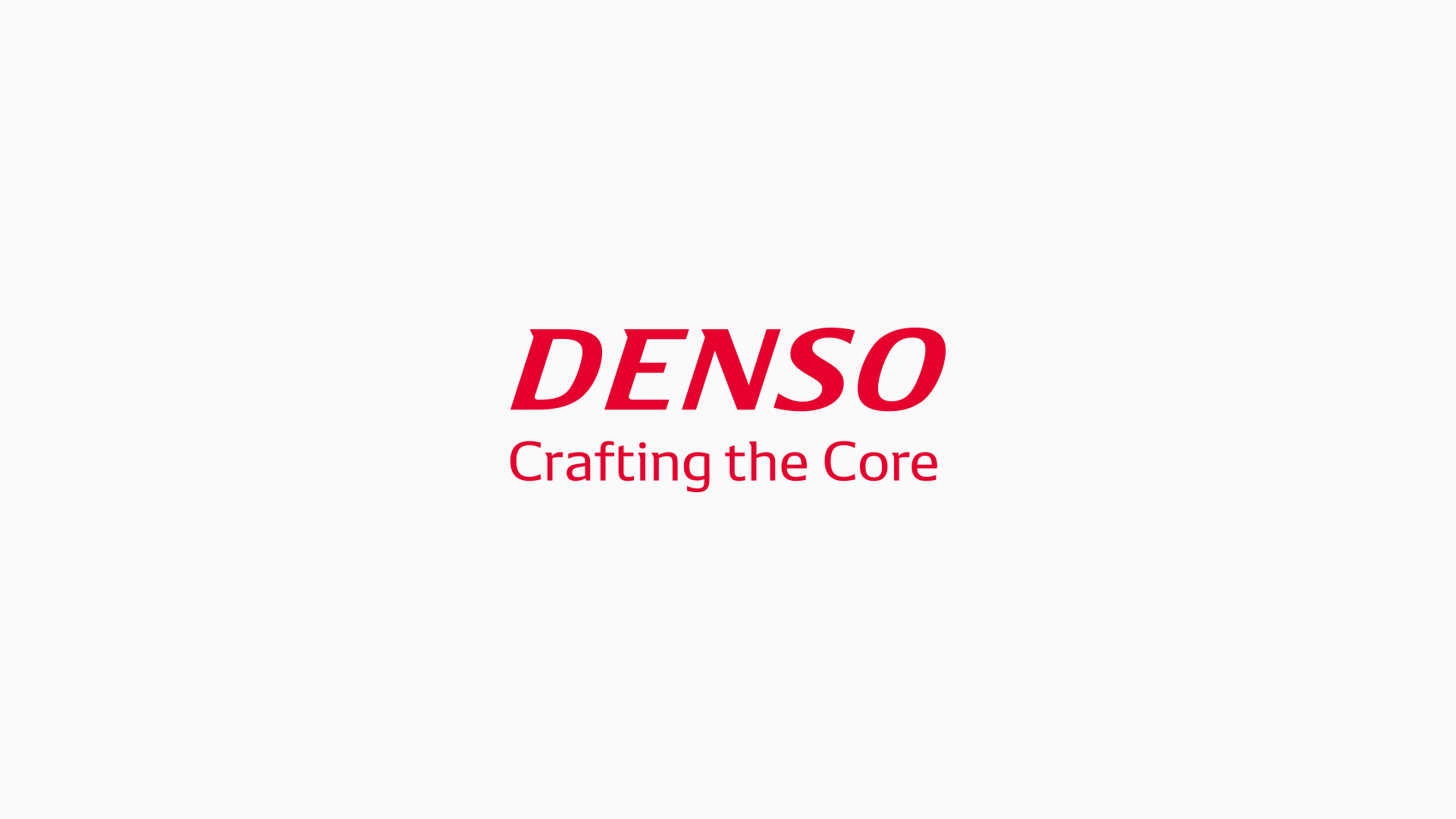
Respect for Human Rights
Basic Stance
Against a backdrop of increasing global interest in sustainability, there is a strong expectation for companies to be considerate of human rights in their business activities.
A work environment with no harassment or discrimination reduces quality-related issues and risks arising from work-related accidents. Promoting business activities that are considerate of human rights also lead to an expansion of business opportunities, acquisition of talented human resources, and enhancement of employee engagement.
DENSO views sustainability management as a crucial theme that must be considered when pursuing its business activities. To that end, DENSO has established respect for human rights as one of its material issues within the promotion of sustainable management, and it is undertaking efforts toward respecting human rights accordingly.
Furthermore, we will steadily promote efforts toward respecting human rights in accordance with the UN Guiding Principles on Business and Human Rights, an international standard.
Source: Caux Round Table Japan
Human Rights Policy
The already established DENSO Group Sustainability Policy and Employee Code of Conduct clearly prohibits discrimination, based on race, gender, age, nationality, religion, disability, injury or illness, or sexual orientation, in all aspects of business, including recruiting, employment, or treatment; and any form of harassment, including sexual harassment, power harassment, and maternity harassment, and child labor, forced labor, or any other form of human rights violation, as well as actions pertaining to such labor. DENSO is working to share and thoroughly enforce this policy on a Groupwide basis.
Furthermore, we have specified the prohibition of discrimination and harassment in employment regulations and are raising awareness of and strictly enforcing the disciplinary actions for breaching these regulations.
Amid a recent rise in the importance of attention given to respecting human rights at businesses in global society, DENSO must further promote efforts to protect human rights, and has formulated the DENSO Group Human Rights Policy, which is a separate policy on human rights based on various international standards, such as the United Nations Universal Declaration of Human Rights and the United Nations Guiding Principles on Business and Human Rights. DENSO’s Human Rights policy was shaped by the expectations and input of third-party institutions and overseas Group companies, and was finalized after discussions and approval by the Management Deliberation Meeting, which includes all senior executive officers, and after being reported to the Board of Directors.
[Supplemental Information] Scope of human rights issues covered by the "DENSO Group Human Rights Policy"
Child labor and young workers, basic working conditions (working hours, holidays, wages and benefits, minimum or living wage, etc.), occupational health and safety, employee health, forced or compulsory labor and any other forms of modern slavery (human trafficking, etc.), sincere communication and discussion with employees or their representatives, discrimination and harassment in all aspects of business (recruitment, employment, treatment, etc.), diversity & inclusion, minorities (women, immigrant workers, people with disabilities, LGBTQ+, etc.), residents in local communities and indigenous people (protection of local environment, natural resources [land/soil, water, forests, etc.], noise and vibration control, traffic safety/congestion reduction, etc.), privacy, consumers (product safety, provision of necessary, sufficient and accurate information), corruption, appropriate use of security, etc.
Human Rights Promotion System
To address the wide range of human rights topics, in addition to our appointed chief human resources officer (CHRO), we have formed a dedicated team to promote initiatives within the Company. The team is embedded in the Human Resources Division but includes members from many relevant divisions, such as corporate strategy, procurement, legal affairs, and compliance. Through collaboration, we create activity plans, share initiatives among divisions, and provide information on the latest social trends regarding human rights.
Reports from the team for promoting human rights initiatives, including on plans for activities based on the Human Rights Policy and the status of their progress, are shared in a timely manner with the Management Deliberation Meeting and other committees. We have also set up an advisory board with officers from relevant divisions to advise on initiatives and support the smooth progress of activities.
International circumstances regarding human rights, legislative trends, and expectations of companies change rapidly, and details of companies’ responses to these issues have been growing in complexity and scope. Accordingly, we exchange information and hold discussions with external stakeholders, such as third-party institutions, Group companies, and the sustainability divisions of other companies with expertise in human rights to accurately understand information and appropriately make judgments.
Specific Initiatives
Employee Education and Awareness Raising
We have anchored our respect for human rights in a dedicated section in our Company Code of Conduct. In addition, we promote respect for human rights through activities such as training and development of employees at all Group companies.
At DENSO in Japan, we have included human rights education for corporate officers, newly appointed managers, new employees, mid-career hires, and temporary employees to ensure the understanding of the DENSO Group Human Rights Policy and human rights issues that we need to bear in mind when conducting business. These issues include discrimination and harassment. We also promote enlightenment activities that encourage an awareness and understanding of human rights, such as a compliance test related to human rights for all employees, including those at domestic Group companies, and the annual Sustainability Survey (for all DENSO CORPORATION employees), which contains questions regarding human rights issues.
Overseas Group companies are also involved in a variety of initiatives. In North America, DENSO Group companies have internal policies prohibiting harassment and are providing education on mutual respect and preventing sexual harassment. In the European region, DENSO Group companies have adopted anti-discrimination and harassment policies as well as sustainability policies.
Individuals participating in a seminar on human rights* [DENSO CORPORATION]
* New employees, mid-career employees, contract employees, new level 3 management class
Note: In fiscal 2023, we enhanced our educational activities on harassment.
Consideration for Human Rights in Everyday Business Activities
Consideration for Residents in Local Communities
To continue our business in local communities where our factories and offices are located, and to exist and prosper together with local communities, it is vital that we respect and protect the rights of residents in local communities and indigenous people whose livelihoods are based in the areas surrounding DENSO’s bases.
We have established DENSO Safety, Health, and Environment Standards (DAS), which are more stringent than environmental regulations in each country and region, and, guided by these standards, we expect to take all possible measures to protect the local environment, such as consistently monitoring and minimizing waste and emissions of chemical substances, reducing the volume of water used, effectively utilizing resources, and reducing noise and vibrations. As a result, we will respect the human rights of residents in local communities around our places of business and minimize our impact on the environment caused by our operations. We are also endeavoring to take measures and consider how to avoid issues with transportation safety (such as traffic accidents and congestion) associated with employee commuting and the receipt and delivery of products and raw materials at our bases.
Furthermore, we have established a point of contact to accept consultations and complaints from residents in local communities, which is publicized on DENSO’s website.
Prevention of Forced Labor, Child Labor, and Other Forms of Labor in Violation of Human Rights
Under the DENSO Group Sustainability Policy and the DENSO Group Human Rights Policy, DENSO states that it will not contribute to forced labor, child labor, or other forms of labor in violation of human rights.
For example, DENSO CORPORATION endeavors to prevent these labor issues through age confirmation by verifying personal identification or certificates of eligibility during recruitment, the management of working hours and overtime hours to prevent overwork, and the payment of fair wages.
Human Rights Due Diligence
In accordance with the DENSO Group Human Rights Policy, we identify and evaluate human rights-related risks that can occur as a result of our business activities and are promoting the ongoing process of human rights due diligence to enact measures to prevent such risks and minimize their impact should they occur.
As the first step of human rights due diligence, we carried out a human rights risk assessment to identify and evaluate potential human rights-related risks facing the Group (at bases in 35 countries and regions). This assessment looked at human rights indicators deeply associated with business (21 indicators, including fair wages, working hours, occupational health and safety, forced labor, child labor, freedom of association, right to collective bargaining, and the rights of indigenous people, minorities, women, and immigrant workers) from among the human rights listed in international standards. Specifically, we utilized DENSO’s global data (such as country or region of operation, scope of business, details of business, and composition of employees), carried out an evaluation of latent risks (assessment based on country risks and business-specific issues), and held workshops with the cooperation of a third-party institution specializing in human rights.
As a result of this assessment, we identified four themes for specific human rights-related risks that have a high relationship with the Group and the automotive industry. These themes include the “human rights of non-Japanese workers in Japan,” “human rights of workers at overseas locations, mainly in Asia,” “complicity with forced labor in the supply chain,” and “discrimination and harassment in the workplace.”
Furthermore, we reported these results to the chief human resources officer (CHRO), who is responsible for promoting human rights, and the Advisory Board, which gained an understanding of details of the assessment and future measures. Going forward, after determining an order of priority for the four identified themes in accordance with the UN Guiding Principles on Business and Human Rights, we will conduct an evaluation of the impact on human rights (impact assessment), which will include verifying the status of progress made on said themes with respect to human rights risks using questionnaires, surveys, and other assessment tools, as well as identifying companies that require further verification and conducting more detailed on-site investigations of them in the presence of third-party institutions. Following the evaluation, we will strengthen and accelerate initiatives geared toward enacting appropriate measures.
Human Rights Risk Assessment Report
Non-Japanese Workers in Japan (Non-Japanese Technical Interns and Specified Skilled Workers)
Human rights issues facing non-Japanese technical interns represent a major human rights-related risk that has a high relationship with the automotive supply chain.
To address these issues, we conduct written surveys of domestic Group companies and major supply chains to better understand the circumstances surrounding non-Japanese technical interns and Specified Skilled Workers. As a result of the surveys, we found that there are companies utilizing non-Japanese technical interns and Specified Skilled Workers, which represents a latent human rights risk.
For this reason, we selected companies for further investigation on a priority basis and conducted direct interviews with non-Japanese workers (technical interns and Specified Skilled Workers) under the guidance of a third-party institution specializing in human rights in order to further confirm details and to clarify the issues faced. As a result of the interviews, the third-party institution reported that although there were points for improvement, there were no major issues that could lead to human rights risks. In addition, the companies investigated are making various efforts to ensure that non-Japanese technical interns are not adversely affected by human rights issues. We shared and presented the results of these investigations as a good example for other domestic companies and suppliers to utilize as a reference when hiring non-Japanese technical interns.
Through our cooperation with a third-party institution specializing in human rights, we will continue to make efforts to understand the recruitment status of non-Japanese workers at domestic Group companies and suppliers and conduct an impact assessment to ascertain whether there are any issues that impact human rights and confirm the level of impact, if so. We will then enact appropriate measures.
| Domestic Group companies | Major supply chains |
|---|---|
| 120 | 2,400 |
* Survey of domestic Group companies and major suppliers regarding the components used in DENSO products and systems
Note: There are no non-Japanese technical interns at DENSO CORPORATION.
Topic: Dialogue with Outside Experts
The Human Resources Division, which is responsible for human rights-related matters, and the Purchasing DX Innovation Division and Corporate Strategy Division, which are major divisions, briefed Mr. Hideto Kawakita of the International Institute for Human, Organization and the Earth (IIHOE)—who has written a third-party opinion on the Company’s sustainability and CSR efforts—on the status of DENSO’s initiatives regarding respect for human rights. Mr. Kawakita evaluated DENSO’s efforts to comply with the UN Guiding Principles on Business and Human Rights, identify human rights issues through risk assessment, and assess the impact on non-Japanese workers in Japan from the perspectives of trends in the global community and the efforts of other companies, and offered valuable opinions and advice on DENSO’s current efforts from various standpoints.
Opinions and Advice
-
-
It would also be beneficial to ask positive questions to non-Japanese technical interns, such as “have your skills improved?”
-
Surveys of non-Japanese workers and technical interns can also raise awareness among suppliers. I recommend that the content of questions and corresponding answer choices be modified for more accurate risk assessment in the future.
-
There is a need to provide support to suppliers for internal awareness-raising activities. I recommend either creating and implementing tools for raising awareness or providing feedback on the survey results (visualizing weak points and other issues, sharing best practices, etc.), among other forms of guidance.
-
I recommend that the CEO send out a message to coincide with Human Rights Day, which is observed on December 10.
DENSO will incorporate such opinions and advice into its future activities.
-
Third-party Opinion on DENSO’s Sustainability Efforts
Human Rights Initiatives across the Supply Chain
Initiatives for respecting human rights are expected to be promoted across our entire supply chain. We actively advance initiatives together with our suppliers to ensure there are no infringements of, nor activities that could lead to, the infringement of human rights.
For example, Supplier Sustainability Guidelines, which summarize items suppliers are expected to comply with, incorporate essential matters that are necessary to realize respect for human rights, including child labor, forced labor, migrant labor, and freedom of association, and are shared with all suppliers to ensure procurement is carried out based on these guidelines.
In addition, we require major suppliers to conduct self-checks on a regular basis using our supplier self-diagnostics, engage in dialogues with a certain number of suppliers, and request that they make direct improvements with regard to necessary issues.
In fiscal 2022, we implemented self-checks of major suppliers (approximately 1,200 companies) around the world and received agreement to promote activities in line with the aims of our Supplier Sustainability Guidelines.
Survey of Conflict Minerals
Regarding mineral resources, there have been reports of human rights issues, including the environmental destruction of production sites associated with mining, health and safety of workers at mines, child labor, and forced labor.
Among these issues, we have identified problems with the mining of conflict minerals based on poor quality working conditions in the Democratic Republic of the Congo and the surrounding areas as a key issue within the supply chain. As a specific effort to address this issue, we have formulated a Companywide policy to respond to the issue of conflict minerals and request that our suppliers engage in the responsible procurement of mineral resources and raw materials. At the same time, with the cooperation of our suppliers, we conduct a survey on conflict minerals once a year.
In fiscal 2022, questionnaires were submitted by all our suppliers subject to the survey (approximately 5,000 companies). Among those companies, we did not find any serious concerns regarding the conflict minerals issue.
Going forward, we will periodically review the scope of risk and consider how to respond to these risks as a company with the aim of expanding the range of minerals with human rights risks associated with changes in markets, such as electrification, and the creation of rules in various countries and regions following these changes.
Grievance Mechanism
In accordance with circumstances in each region of operation, the DENSO Group has set up internal reporting systems at its regional headquarters and each business site. These systems allow employees to report their concerns and receive consultation on matters related to legal and regulatory violations via email, telephone, written correspondence, or face-to-face interaction.
At DENSO CORPORATION, we have established the Business Ethics Hotline, which is administered internally by DENSO and externally by an outside attorney. The Business Ethics Hotline is a whistleblower system for the broad reporting of violations of laws, regulations, and Company rules in business operations in accordance with Japan’s Whistleblower Protection Act. Through this system, we receive reports and consultations regarding harassment, discrimination, and other human rights-related issues, and provide support to affected parties where investigations identify that we have caused or contributed to an impact on human rights.
Furthermore, we have determined that we have a duty of confidentiality (guarantee of anonymity) regarding the informant and prohibit any disadvantageous treatment as a result of reports or consultations to ensure that whistleblowers can use the system with peace of mind. This system can be used by not only all employees of DENSO CORPORATION and domestic Group companies, including dispatched employees and permanent subcontractors, but also suppliers.
In fiscal 2023, the Business Ethics Hotline received human rights-related reports and consultations regarding discrimination and harassment and carried out fact-finding investigations, such as interviews with related people. As a result, there were no cases of human rights violations with serious repercussions, and we dealt with situations appropriately according to the circumstances of each individual case.
In addition to the Business Ethics Hotline, we have established specialized consultation centers for human rights-related issues in the workplace, including the Harassment Consultation Center, the Disability Consultation Center, and the LGBT Consultation Center. While the level of awareness of these consultation centers is 97.8% (fiscal 2023), we aim to exceed that rate and reinforce support measures.
Future Initiatives
Efforts toward respecting human rights have been growing in importance in business that takes place in a global society.
We recognize that respect for human rights is an essential factor in gaining trust and understanding from all DENSO’s stakeholders as a company that encourages the active roles of a diverse group of employees.
We will continue to steadily promote our Human Rights Policy throughout the DENSO Group and increase the level of human right-related initiatives, such as reinforcing human rights due diligence and support measures, while incorporating the opinions of our external stakeholders.























